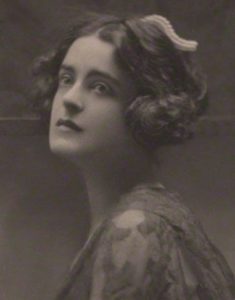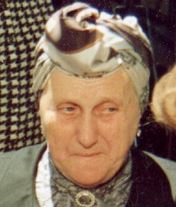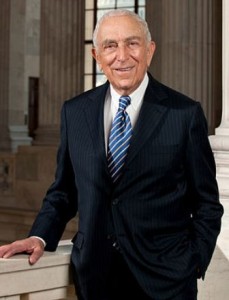The Piano Sensation Who Saved Refugees
 Harriet Pearl Alice Cohen (1901-1967) was born in London, England to a Jewish family with Russian heritage. She started playing piano in early childhood, and by age 13 won the Ada Lewis Scholarship and the Sterndale Bennett Prize from the Royal Academy of Music. A year later, she made her professional debut and soon became one of the most popular musicians in England. She was noted for resurrecting old English compositions that had been forgotten, as well as opening up Spanish and Russian music to the wider world. In fact, she was permitted to visit the Soviet Union (and perform there) in 1935, bringing back great compositions by contemporary Russians that she then performed around the world. While visiting Vienna in 1933, Cohen first recognized the plight of refugees fleeing Nazi Germany. She decided to devote herself to their cause. Cohen went on to raise large sums of money to support the refugees, and worked with several organizations to bring them to safety. In 1934, she performed a special benefit concert, with Albert Einstein on the violin (!), to raise money. Einstein was only one of Cohen’s many admirers. Charming and witty, Cohen’s close circle of friends included H.G. Wells, British Prime Minister Ramsay MacDonald, Eleanor Roosevelt, George Bernard Shaw, and Chaim Weizmann. The latter won her over to the Zionist cause. Cohen made her first trip to the Holy Land in 1939, and quickly gained a reputation as a passionate Zionist. She fought so passionately, in fact, that it led to two assassination attempts on her life! Both for her musical contributions, and for her work with refugees, Cohen was awarded the Commander of the Order of the British Empire (one step below being knighted) in 1938. Unfortunately, she would later severely damage her right hand on broken glass, and could no longer use it. Undeterred, she continued to play and perform with her left hand only, and renowned composer Sir Arnold Bax (another admirer) wrote for her the Concertino for Left Hand. Bax would credit her with inspiring most of his compositions, while Albert Einstein referred to her as “the beloved piano-witch”. Cohen was also credited with bringing Bach back into the spotlight (listen to her play Bach here). She recorded music for films, too, and published two books. In 1954, she was awarded the key to the City of London. Many see Harriet Cohen as one of the first modern music superstars.
Harriet Pearl Alice Cohen (1901-1967) was born in London, England to a Jewish family with Russian heritage. She started playing piano in early childhood, and by age 13 won the Ada Lewis Scholarship and the Sterndale Bennett Prize from the Royal Academy of Music. A year later, she made her professional debut and soon became one of the most popular musicians in England. She was noted for resurrecting old English compositions that had been forgotten, as well as opening up Spanish and Russian music to the wider world. In fact, she was permitted to visit the Soviet Union (and perform there) in 1935, bringing back great compositions by contemporary Russians that she then performed around the world. While visiting Vienna in 1933, Cohen first recognized the plight of refugees fleeing Nazi Germany. She decided to devote herself to their cause. Cohen went on to raise large sums of money to support the refugees, and worked with several organizations to bring them to safety. In 1934, she performed a special benefit concert, with Albert Einstein on the violin (!), to raise money. Einstein was only one of Cohen’s many admirers. Charming and witty, Cohen’s close circle of friends included H.G. Wells, British Prime Minister Ramsay MacDonald, Eleanor Roosevelt, George Bernard Shaw, and Chaim Weizmann. The latter won her over to the Zionist cause. Cohen made her first trip to the Holy Land in 1939, and quickly gained a reputation as a passionate Zionist. She fought so passionately, in fact, that it led to two assassination attempts on her life! Both for her musical contributions, and for her work with refugees, Cohen was awarded the Commander of the Order of the British Empire (one step below being knighted) in 1938. Unfortunately, she would later severely damage her right hand on broken glass, and could no longer use it. Undeterred, she continued to play and perform with her left hand only, and renowned composer Sir Arnold Bax (another admirer) wrote for her the Concertino for Left Hand. Bax would credit her with inspiring most of his compositions, while Albert Einstein referred to her as “the beloved piano-witch”. Cohen was also credited with bringing Bach back into the spotlight (listen to her play Bach here). She recorded music for films, too, and published two books. In 1954, she was awarded the key to the City of London. Many see Harriet Cohen as one of the first modern music superstars.
Words of the Week
Better to talk to a woman and think of God, than to talk to God and think of a woman.
– Yiddish Proverb


